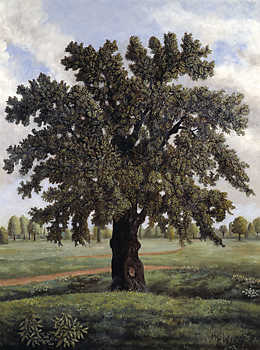INIVA & Tate Liverpool: Keywords / an expanded exhibition curated by Grant Watson (DAI faculty) and Gavin Delahunty
Sonia Boyce, Willie Doherty, Rita Donagh, John Dugger, Jason Evans, Rotimi Fani-Kayode, Paul Graham, Sunil Gupta, Richard Hamilton, David Hammons, Mona Hatoum, Anthony Hill, Lubaina Himid, Harry Holland, Gordon House, Malcolm Hughes, Inventory, Derek Jarman, Louis Le Brocquy, Peter Lowe, Kenneth Martin, Stephen McKenna, Gustav Metzger, Chris Ofili, Julian Opie, Eduardo Paolozzi, Donald Rodney, Keith Vaughan, Rachel Whiteread, Stephen Willats, David Wojnarowicz, Carey Young
Keywords is an exhibition based on a book of the same name by Raymond Williams. First published in 1976, Keywords – A vocabulary of culture and society has become a seminal work in the study of the English language containing over one hundred and thirty words, such as Aesthetic, Bureaucracy, Equality and Wealth which are considered in a series of short essays that give an account of each word's use, its etymology, and range of meanings. In the book Williams distinguished Keywords as those words that repeatedly crop up in our discussion of 'the practices and institutions, which we group together as culture and society.'
The book is organized alphabetically, but Williams said that he often wished some other sort of presentation could be devised, a format, which would reflect how words are embedded in particular situations and produce networked relationships. The exhibition Keywords attempts such a format. The artist Luca Frei working in collaboration with Will Holder, has painted a frieze of keywords from the book directly onto the gallery wall, these are: Behavior – Theory – Popular –Realism –Technology – Folk – Violence – Criticism – Taste. Beneath this a selection of works from the Tate collection have been installed, allowing for a push and pull between word and image. This arrangement establishes a formal connection between the two, or the words become a series of imperfect captions or else suggest themes for the viewer to consider. Conversely the works themselves inflect the words. This exaggerated staging and its basic openness to interpretation, is different to conventional labeling, which often gives a summary of the work, allowing the viewer to grasp it and then move on.
The artworks presented cover the period from 1976 to the present with a significant focus on the 1980s. Almost all works are from artists who have practiced in Britain from this period, consequently they reflect, investigate or contest what the term British meant as it underwent a paradigm shift. The decade was marked by different forms of oppositional politics, which had a direct impact on culture—from the miners' strike, to the Campaign for Nuclear Disarmament, from mass opposition to the Poll Tax, to the race riots and an ongoing insurgency against British rule in Northern Ireland. The exhibition also aims to reflect William's belief that culture itself is key to these changes, including the emergence of a more emphatically diverse society in its identity and its forms of expression—something demonstrated by many of the works in this exhibition. An idea of this period is further detailed in a programme of films curated by the Otolith Collective featuring works from Channel 4 between 1979 and 1985, which voice some of the issues facing politically motivated filmmakers at that time.
Continuing with Iniva's long term Keywords lecture programme, talks from Linda Bellos, Douglas Crimp, Leo Bersani and Geeta Kapur will address the keywords Equality, Theory, Sex and Practice. The selection of Keywords is brought up to date, in a series of workshops taking place within the exhibition, facilitated by Adrian Rifkin in collaboration with Christian Nyampeta and Rebecca Bligh and Morgan Quaintance, as well as in the evolution of the project towards an exhibition at Tate Liverpool in 2014. This work of developing new keywords is undertaken with the help of artists, writers, critical theorists and students, as well as the contribution of the general public.
Curated by Grant Watson and Gavin Delahunty. Organised by Iniva (Institute of International Visual Arts) in collaboration with Tate Liverpool.
Films: programmed by the Otolith Collective.
The Song of the Shirt, Sue Clayton and Jonathan Curling 1979; Voyages, Marc Karlin 1985; Darkest England, Mick Eaton 1984.
Workshops: Adrian Rifkin, Christian Nyampeta, Rebecca Bligh, Morgan Quaintance, Teresa Cisneros
Talks: Linda Bellos, Douglas Crimp, Leo Bersani, Geeta Kapur, Guy Brett, John Dugger, Militant Image
Exhibition design: Luca Frei
Word frieze commission: Luca Frei and Will Holder
Keywords
27 March–18 May 2013
Keywords continues at Tate Liverpool
26 February–11 May 2014
Iniva at Rivington Place
London EC2A 3BA
About Iniva
Iniva (Institute of International Visual Arts) engages with new ideas and emerging debates in the contemporary visual arts, reflecting in particular the diversity of contemporary society. We work with artists, curators, creative producers, writers and the public to explore the vitality of visual culture. Iniva programmes at Rivington Place, off-site and virtually. www.iniva.org
Rivington Place opening hours: Tuesday, Wednesday, Friday: 11am–6pm (except closed on Friday 29 March), Late Thursdays: 11am–9pm, Saturday: 12–6pm, closed Sundays and Mondays. Admission free. Nearest Tubes: Old Street/Liverpool Street/Shoreditch High St. For Rivington Place enquiries contact: +44 (0)20 7749 1240 / info@rivingtonplace.org / www.rivingtonplace.org
About Tate
Tate Liverpool is the home of the national collection of modern and contemporary art in the North of England. Attracting more than 14.5 million visitors since opening in 1988, Tate Liverpool has consistently been the UK's most visited gallery of modern and contemporary art outside London. Tate Liverpool presents displays of work from the Tate collection alongside special exhibitions of modern and contemporary art, and has a diverse Learning programme. Major exhibitions in the past five years include Klimt: Painting, Design & Modern Life in Vienna 1900 (2008), Picasso: Peace and Freedom (2010), René Magritte: The Pleasure Principle (2011) and Turner Monet Twombly: Later Paintings (2012). www.tate.org.uk/liverpool

